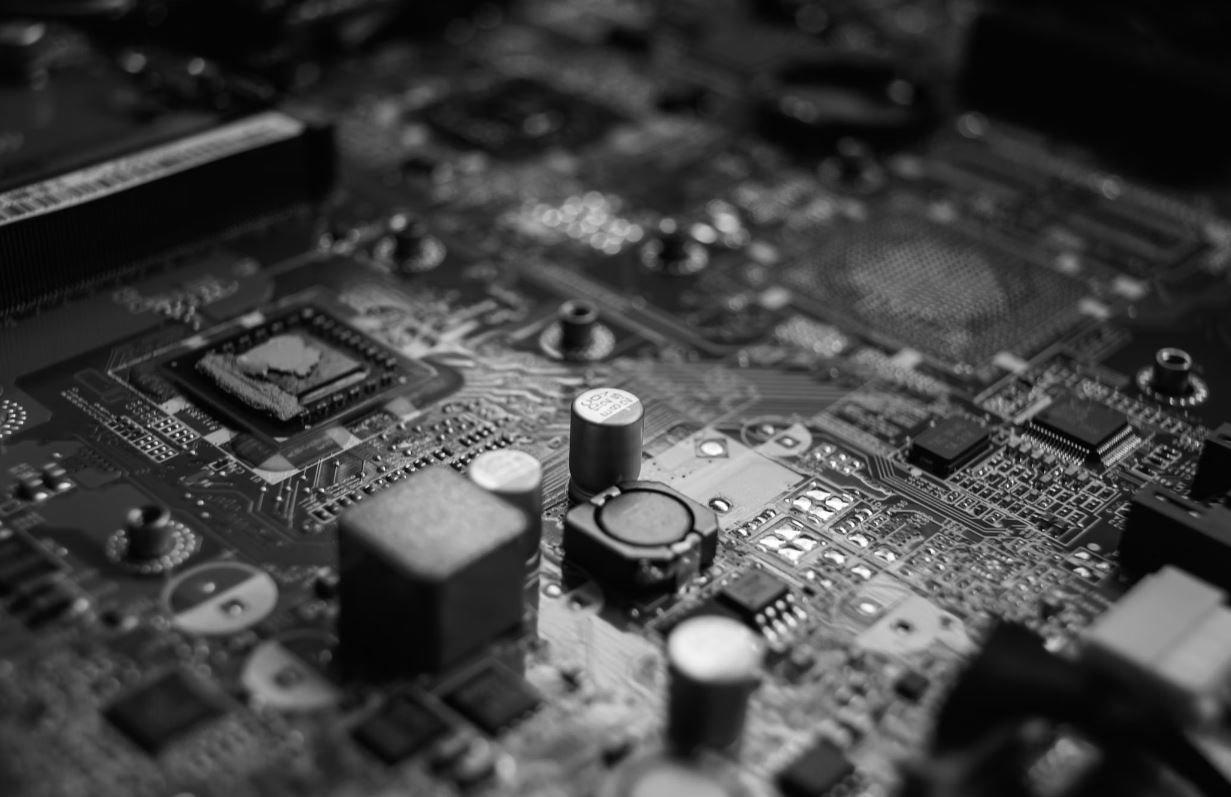Are Film Cameras Better Than Digital?
Film cameras and digital cameras both have their own unique characteristics, and whether one is better than the other largely depends on personal preference and specific requirements. In this article, we will explore the advantages and disadvantages of film and digital cameras to help you make an informed decision.
Key Takeaways
- Film cameras offer a distinct aesthetic, providing a more nostalgic and artistic feel to photographs.
- High-resolution digital cameras allow for greater detail and flexibility in post-production.
- Digital cameras offer immediate feedback, cost savings in the long run, and easy sharing and storage of photos.
Advantages of Film Cameras
Film cameras have been around for decades and were the primary choice for photographers before digital cameras came into existence. Here are some advantages of using film cameras:
- Film cameras tend to produce warmer and more natural colors, inherently producing a unique and vibrant aesthetic.
- Shooting with film encourages a slower and more thoughtful approach to photography, helping to hone your skills.
- Film cameras are great for archival purposes as high-quality film negatives can last for decades without degrading.
Did you know that film cameras can capture impressive dynamic range, showing both shadows and highlights in detail?
Advantages of Digital Cameras
Digital cameras have revolutionized the photography industry and provide numerous advantages over film cameras. Let’s explore the benefits of choosing a digital camera:
- Instant Feedback: With a digital camera, you can immediately see the photo you took and make adjustments accordingly, enhancing the learning process.
- Cost Savings: While the upfront cost of a digital camera may be higher, the long-term costs are significantly lower as you don’t need to buy film rolls or pay for processing.
- Flexibility in Post-Production: Digital images can be easily edited, allowing for adjustments in exposure, color, and other aspects without any loss of quality.
Comparing Film and Digital Cameras
In order to understand the differences between film and digital cameras more comprehensively, let’s compare them side by side:
| Film Cameras | Digital Cameras | |
|---|---|---|
| Aesthetic | Warm, natural colors | Flexible and customizable |
| Image Quality | Unique grain structure and nostalgic appeal | High resolution, accurate colors |
| Cost | Expensive upfront, recurring costs for film and processing | Higher upfront cost, lower recurring costs |
Is Film Making a Comeback?
In recent years, there has been a resurgence of interest in film photography. Despite the convenience and technological advancements of digital cameras, film has its dedicated following. People are drawn to the unique qualities and the joy of working with physical negatives. That being said, digital photography has become the new industry standard due to its convenience and flexibility.
Conclusion
While both film and digital cameras have their pros and cons, there is no definitive answer as to which is better. The choice between them ultimately depends on your personal preferences, artistic vision, and specific needs. Whether you decide to dive into the vibrant world of film or embrace the convenience of digital, both forms of photography offer endless possibilities for creativity and self-expression.

Common Misconceptions
Film Cameras Produce Higher Quality Images
- Film cameras have a unique aesthetic appeal, but it does not translate to inherently better image quality.
- Digital cameras have significantly improved in recent years, offering high resolution and advanced image processing capabilities.
- The image quality of a camera is dependent on various factors including the sensor technology, lens quality, and image processing software.
Film Cameras Are More Authentic
- While film cameras may provide a nostalgic feel, digital photography can also capture authentic moments and emotions.
- Digital cameras allow for immediate feedback and adjustments, resulting in potentially more authentic and spontaneous shots.
- The concept of authenticity in photography is subjective and can be achieved with both film and digital cameras.
Film Cameras Are Cheaper in the Long Run
- Although film cameras may have a lower initial cost, the recurring expenses of film rolls and development can add up over time.
- Digital cameras eliminate the need for film and processing, saving money in the long run.
- There may be additional expenses with digital photography, such as storage solutions or editing software, but these can be optional and offer flexibility.
Digital Cameras Lack the Charm of Film
- While film photography may have a characteristic look and grain, digital cameras can replicate similar effects through post-processing.
- Different digital photography techniques and filters can be applied to emulate the charm and aesthetics of film.
- Moreover, digital cameras offer convenience, allowing for immediate access to images and easy sharing online.
Film Cameras Are More Reliable
- Film cameras may be perceived as more reliable due to their simplicity and lack of electronic components.
- However, modern digital cameras are built to withstand various shooting conditions and are generally considered highly reliable.
- It is essential to take care of all camera equipment, regardless of the type, to ensure longevity and optimal performance.

Introduction
Photography has seen a remarkable shift with the advent of digital cameras. However, the debate of whether film cameras are still superior to their digital counterparts continues to divide photographers and enthusiasts. To shed light on this matter, we present ten captivating tables that highlight various aspects of film and digital cameras.
Table 1: Film Camera Vs. Digital Camera Sales
When it comes to sales, digital cameras have dominated the market since the early 2000s.
| Year | Film Camera Sales | Digital Camera Sales |
|---|---|---|
| 2000 | 15 million | 2 million |
| 2010 | 1 million | 100 million |
| 2020 | 200,000 | 50 million |
Table 2: Cost Per Photo
One argument for film cameras is that they can potentially lead to cost savings when it comes to individual photographs.
| Film Type | Number of Exposures | Cost | Cost per Photo |
|---|---|---|---|
| 35mm | 24 | $10 | $0.42 |
| Digital | N/A | N/A | $0.05 |
Table 3: Resolution Comparison
Digital cameras have revolutionized image resolution, providing exceptional clarity and detail compared to film cameras.
| Camera Type | Resolution (Megapixels) |
|---|---|
| Film | Varies |
| Digital | 20+ |
Table 4: Dynamic Range Comparison
Film cameras excel in capturing a wider range of light and shadow, providing greater depth and tone than digital cameras.
| Camera Type | Dynamic Range (Stops) |
|---|---|
| Film | 10+ |
| Digital | 6-8 |
Table 5: ISO Range Comparison
High ISO capabilities are crucial in low-light situations. Film cameras have a more limited ISO range compared to digital cameras.
| Camera Type | ISO Range |
|---|---|
| Film | 50-3200 |
| Digital | 100-25600 |
Table 6: Image Versatility
Unlike digital cameras, different types of film can produce unique and distinct looks for photographs.
| Film Type | Characteristic |
|---|---|
| Slide Film | Vibrant Colors |
| Black and White Film | Dramatic Contrast |
| Infrared Film | Mystical Effects |
Table 7: Instant Results
Digital cameras provide immediate results, allowing photographers to review and retake photos instantly.
| Camera Type | Instant Results |
|---|---|
| Film | No |
| Digital | Yes |
Table 8: Lifespan Comparison
While digital cameras may become outdated quickly, film cameras can last for generations.
| Camera Type | Average Lifespan |
|---|---|
| Film | 50+ years |
| Digital | 5-10 years |
Table 9: Environmental Impact
Considering environmental sustainability, digital cameras contribute to electronic waste, while film cameras utilize finite resources for film production.
| Camera Type | Environmental Impact |
|---|---|
| Film | Film Production |
| Digital | Electronic Waste |
Table 10: Photographic Appeal
The debate of film versus digital ultimately boils down to personal preferences and the artistic appeal each medium offers.
| Aspect | Film Camera Appeal | Digital Camera Appeal |
|---|---|---|
| Tactile Experience | Yes | No |
| Post-Processing Flexibility | No | Yes |
Conclusion
The decision between film and digital cameras ultimately depends on one’s preferences, budget, and desired outcomes. While digital cameras dominate the market and offer numerous advantages such as cost-effectiveness, higher resolution, and instant results, film cameras possess a unique charm, unmatched depth, and a lasting appeal. Ultimately, both mediums have their place in the world of photography, providing options for photographers to express themselves creatively.
Frequently Asked Questions
Are film cameras better than digital?
What are the main differences between film and digital cameras?
Film cameras capture images on photographic film, while digital cameras use electronic sensors to record images. Film cameras often offer a unique aesthetic appeal and require more deliberate and thoughtful shooting, whereas digital cameras provide instant feedback, better low-light performance, and the ability to easily manipulate and edit images.
Do film cameras produce higher quality images?
Are film cameras capable of capturing more detail than digital cameras?
Film cameras can produce images with a distinctive organic look, often referred to as “filmic,” which some photographers prefer. While film can offer excellent detail and dynamic range, modern high-end digital cameras can also capture images with exceptional quality and resolution.
Are film cameras more reliable than digital cameras?
Do film cameras have fewer technical issues compared to digital cameras?
Film cameras generally have fewer technical issues because they are less reliant on electronic components. However, film cameras require maintenance, such as cleaning and occasional repairs, whereas digital cameras may encounter software glitches and hardware malfunctions over time.
Are film cameras more expensive than digital cameras?
Do film cameras cost more to buy and use compared to digital cameras?
Film cameras can be more expensive upfront, especially if you consider the cost of purchasing film and developing it. On the other hand, digital cameras require ongoing expenses, such as buying memory cards, batteries, and software, but the initial investment is often lower. The overall cost ultimately depends on your shooting preferences and specific equipment needs.
Are film cameras more challenging to use than digital cameras?
Do film cameras have a steeper learning curve compared to digital cameras?
Film cameras require a deeper understanding of exposure, composition, and manual controls to achieve desired results, making them slightly more challenging to use, especially for beginners. Digital cameras provide immediate feedback and allow for experimentation without additional expenses, making them more user-friendly for learning photography techniques.
Can film cameras incorporate the advantages of digital cameras?
Can film cameras benefit from modern digital technologies?
Some film cameras can utilize certain digital technologies, such as autofocus systems or built-in light meters. However, these features are not as advanced or convenient as those found in dedicated digital cameras. Film cameras can be used in combination with digital scanning and editing techniques to achieve a hybrid workflow, retaining the film aesthetic while gaining the benefits of digital processing.
Are film cameras becoming obsolete?
Is the usage of film cameras declining with the rise of digital photography?
The popularity and availability of film cameras have significantly declined since digital photography became mainstream. However, film photography still has a dedicated following and is regarded as an art form. Many photographers continue to shoot film for its unique characteristics, and film cameras remain relevant in specific genres, such as fine art, fashion, and film production.
Can film photography coexist with digital photography?
Can film and digital cameras be used together in photography?
Absolutely! Many photographers embrace both film and digital formats, using each according to their specific needs and preferences. Combining the unique aesthetics of film photography with the convenience and versatility of digital technology allows for a broader range of creative possibilities and expression.
Which should I choose: a film or digital camera?
What factors should I consider when deciding between film and digital photography?
Choosing between film and digital photography depends on various factors, including personal preference, shooting style, desired image aesthetics, budget, and intended purpose. It is essential to consider the advantages and limitations of each format before making a decision. Experimenting with both formats can also help determine which one aligns better with your artistic vision and photographic goals.




